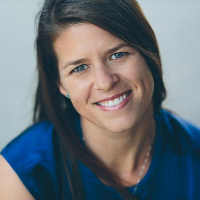Dear Melody: What Advice Do You Have for a 30-Something in Eating Disorder Recovery?
“Dear Melody” is an advice column by Dr. Melody Moore, a clinical psychologist, yoga instructor, and the founder of the Embody Love Movement Foundation. Her foundation is a non-profit whose mission is to empower girls and women to celebrate their inner beauty, commit to kindness, and contribute to meaningful change in the world. Dr. Moore is a social entrepreneur who trains facilitators on how to teach programs to prevent negative body image and remind girls and women of their inherent worth. Her work has been featured in the books Yoga and Body Image and Yoga and Eating Disorders: Ancient Healing for Modern Illness, as well as in Yoga Journal, Yoga International, and Origin Magazine.
“Dear Melody…” her letter began, “What advice do you have for a 30-something in recovery?” This question is one that I hear often, and today, I wanted to share my response publicly in the case it’s something that will support you. With all that you are juggling and all that is required of you, it’s vital to determine for yourself what you hold as most valuable.
When you have a clear sense of your values, it helps you to prioritize your time and attention. What is most valuable to you can then be used as a lighthouse for you to direct your energy and efforts. Your values serve as a barometer for whether you are in or out of alignment, and can help you maintain integrity for yourself and others.
Recovery is hard. No matter what you’re up against, and especially when you are parenting, learning, and working while trying to diminish the symptoms of your eating disorder. I hope you are honoring yourself for your willingness to stay in the discomfort of recovery despite all of what may seem like obstacles to it.
My advice to you is to consider your health and well-being, which includes your freedom from disordered eating, to be your highest value. Your children, your coworkers and clients or patrons, and your education depend on your recovery. There is no chance of you being able to serve as your best parent, student, or employer/ee if you are being hijacked by an eating disorder.
Bargaining with the voices of ED simply takes up too much time and energy, and causes too much confusion, for you to meet the demands of your life in a way that feels sustainable to you and those impacted by you. It may feel counter-intuitive at times, but your recovery has to come first.
If not, everything else will be negatively impacted by your inability to be fully available, in mind, body, and spirit, for it. Even when your children or the demands of your job or school don’t make it easy for you to take the necessary steps toward holding your recovery sacred, you have to set boundaries that protect your health.





